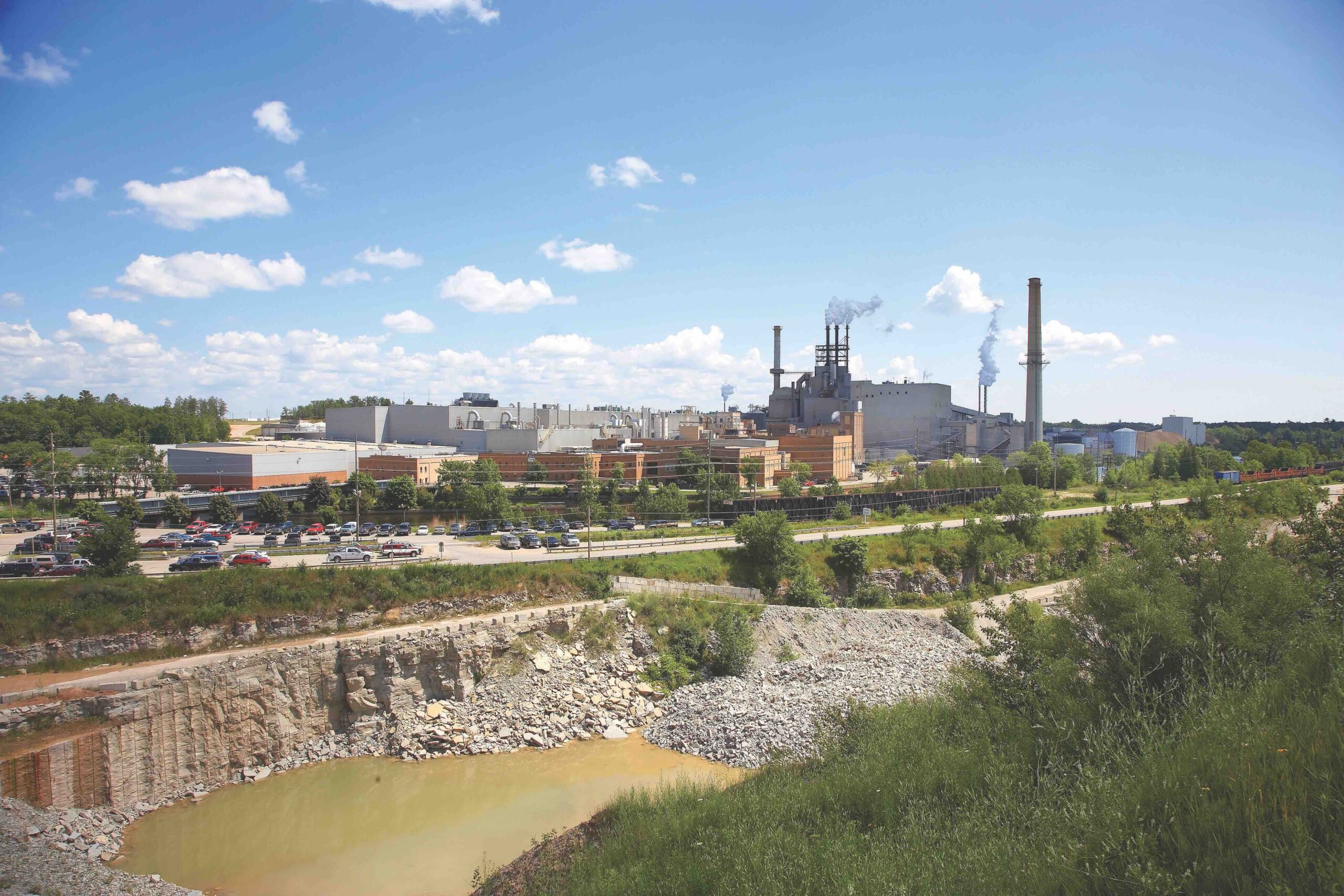The following points may be attributed to Brian Peterson, Operations Vice President for Billerud’s Escanaba Mill:
- At Billerud, the health and safety of our employees, including those who support and visit our mills, is always our first priority. We take very seriously any situation that could put the wellness of our employees in jeopardy.
- On March 3, Billerud learned of atypical pneumonia infections among a number of employees at the Escanaba Mill from the Public Health Delta & Menominee Counties (PHDM) in Escanaba, Michigan. Initial testing has confirmed that some of these cases were caused by a fungal infection called blastomycosis.
- From the moment we became aware, we have been leveraging all available public health resources and other professionals to quickly understand any and all measures we can take to support our colleagues and implement proactive steps toward prevention.
- According to the PHDM, the Upper Peninsula (UP) of Michigan is a known risk area for blastomycosis infection. Blastomycosis is a disease associated with a fungus that grows in moist soil and decomposing matter such as wood and leaves that can become airborne if disturbed. Based on our research and information from health professionals and government agencies, these infections are rare and most people who breathe in blastomyces will not get sick. According to Centers for Disease Control and Prevention (CDC), blastomycosis doesn’t spread between people or between people and animals through the air.
- According to PHDM, as of April 10, there have been 19 confirmed cases of blastomycosis among Escanaba employees, which includes hourly, salary and contractors. A confirmed case is a person with symptoms of blastomycosis and where the fungus has either been grown (culture) or seen by microscope in a test specimen. In addition to the 19 confirmed cases, 74 people have been classified as probable cases. A probable case is a person with symptoms of blastomycosis and who has a positive antigen or antibody test.
- We have been proactively and diligently working with the Public Health Delta & Menominee Counties (PHDM), an industrial hygienist, the Michigan Department of Health and Human Services (MDHHS), the National Institute for Occupational Safety and Health (NIOSH), and the Centers for Disease Control and Prevention (CDC).
- Billerud is following recommendations of these experts, including implementing numerous, proactive steps to protect the health and safety of our employees, contractors and visitors. These steps include:
- Retained an industrial hygienist and are consulting with the above organizations on actions and plans during the investigation. The investigation is ongoing and will likely take some time to complete.
- Conducted deep cleaning in high traffic areas throughout the mill, inspected ventilation systems and replaced filters, and tested various raw materials coming into the mill.
- Conducted a preliminary onsite Health Hazard Evaluation to study the health and safety of the Escanaba mill employees. The evaluation team consisted of investigators from NIOSH, CDC and MDHHS. These experts met with members of Billerud management, the mill’s occupational health and safety team, and union representatives. The evaluation will continue as the NIOSH team analyzes data and reviews case investigation information.
- Providing NIOSH and OSHA-recommended N95 masks to all employees, contractors and visitors, along with information on how to properly wear the mask.
- Communicated the symptoms of blastomycosis to workers and visitors, recommending they contact their local healthcare providers if they are experiencing any of these symptoms.
- Identifying the source of the fungal outbreak can be difficult because the blastomyces fungus is endemic to our area and there has never been an industrial outbreak of this nature documented anywhere in the U.S from which we can learn. Nonetheless, we are working closely with local, state and national health officials and together we are making every effort to identify exposures common among ill Escanaba employees.
- While symptoms of blastomycosis are often non-specific, they most commonly include cough, fever, chest pain, muscle or joint pain, shortness of breath, weight loss, night sweats, and fatigue. Symptoms can appear between three weeks to three months after exposure. Blastomycosis can be treated with antifungal medications prescribed by a medical provider and are especially effective if treated soon after symptoms begin.
- Billerud is continuing to monitor cases to protect the health and safety of our employees, contractors and visitors. We will continue to closely communicate with local union leaders, mill workers, state and local public health officials, and our communities as we learn new information.
- Mill operations are running uninterrupted and we are continuing to service our customers at this time.
- We continue to wish all colleagues with ongoing symptoms a safe and smooth recovery.
Media Inquiries
Contact:
Shawn Hall, (North America) Director Communication
shawn.hall@billerud.com
